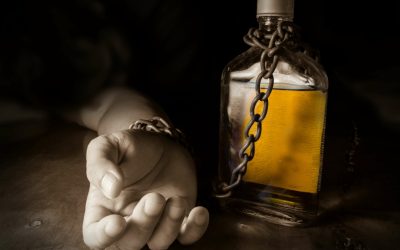This hypothesis has not been directly tested, and it should be noted
that other factors may play a role in the increased REM seen in long-term abstinent
alcoholics. For example, administration of the tumor necrosis factor α
(TNF-α) antagonist etanercept led to normalization of REM sleep in 18 abstinent
alcoholics (Irwin et al. 2009). Cortisol rhythms show no evidence for disruption early in withdrawal or two to
four weeks post drinking in two studies (Mukai et al.
1998; Fonzi et al. 1994). However, those
with delirium tremens did have altered rhythms (Mukai et al.
1998; Fonzi et al. 1994). Kuhlwein, Hauger and Irwin (2003) reported lower cortisol early in
the night and higher levels later in the night in their African American alcoholics after
two weeks.
- Insomnia occurs despite the opportunity and desire to sleep, and leads to excessive daytime sleepiness and other negative effects.
- “Daily exercise smooths out hormonal fluctuations and helps decrease inflammation,” Dr. Marin says.
- When your body is metabolizing alcohol while you’re asleep, you’ll experience more NREM sleep and less REM sleep than you otherwise would.
Laboratory based polysomnographic studies of abstinent alcoholics typically show a
pattern of sleep disturbance with increased wakefulness consistent with self-reports of
persistent sleep disturbance common in this population. Sleep efficiency does alcohol help you sleep is a simple index
of the proportion of the time in bed spent asleep and thus a polysomnographic marker of
general sleep quality. We look at the difficult relationship between alcohol and sleep and how you can be mindful of this in the evening.
Other general adverse effects
Alcohol can help people feel more relaxed and sleepy, but it’s also linked to poor sleep quality and duration, according to the Sleep Foundation, a U.S. nonprofit organization. Generally, the more a person drinks, the more their sleep quality suffers. If you drink alcohol at night and have trouble falling or staying asleep, you might wonder how long you should wait between your last drink and going to bed so your sleep isn’t impacted.

Whether you have had one or multiple drinks, it’s best to wait for your body to fully process the alcohol before heading to bed. In general, try to avoid drinking alcohol four hours before you plan on going to sleep. To help assess how alcohol https://ecosoberhouse.com/ may be affecting your sleep, experts recommend an alcohol-free reset period, or what Dr. Martin called “an alcohol holiday,” lasting at least two weeks. “It can be very eye-opening to appreciate how much alcohol affects your sleep,” she said.
Disrupted sleep cycle
Trying to quit cold turkey on your own can lead to withdrawals, which can cause new health risks, such as experiencing an REM sleep behavior disorder. As you address your alcohol dependency under medical supervision, better-quality sleep is only one of the valuable benefits you’ll experience. Sleep deprivation due to alcohol consumption can exacerbate performance impairment and daytime sleepiness. Moderate alcohol consumption lowered restorative sleep quality by 24 percent, and high alcohol intake by as much as 39.2 percent. Therefore, HRV measurements enabled the researchers to assess the quality of the participants’ restful state. The scientists examined the participants’ first 3 hours of sleep after drinking alcohol.
Sleep apnea is a common disorder that causes breathing to repeatedly stop and restart during sleep, affecting the amount of oxygen your body gets. Individuals with sleep apnea often snore, gasp for air while asleep and wake frequently throughout the night. You may wake feeling tired, groggy and not well rested—even if you seemingly slept the entire night. Alcohol can have a sedative effect and cause a person to fall asleep more quickly than usual.

